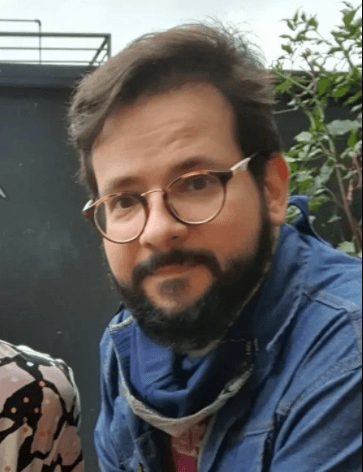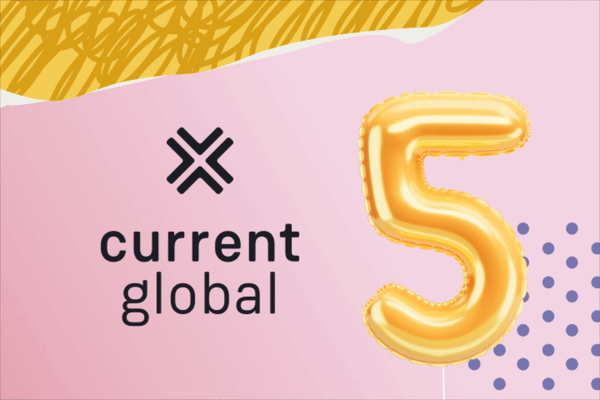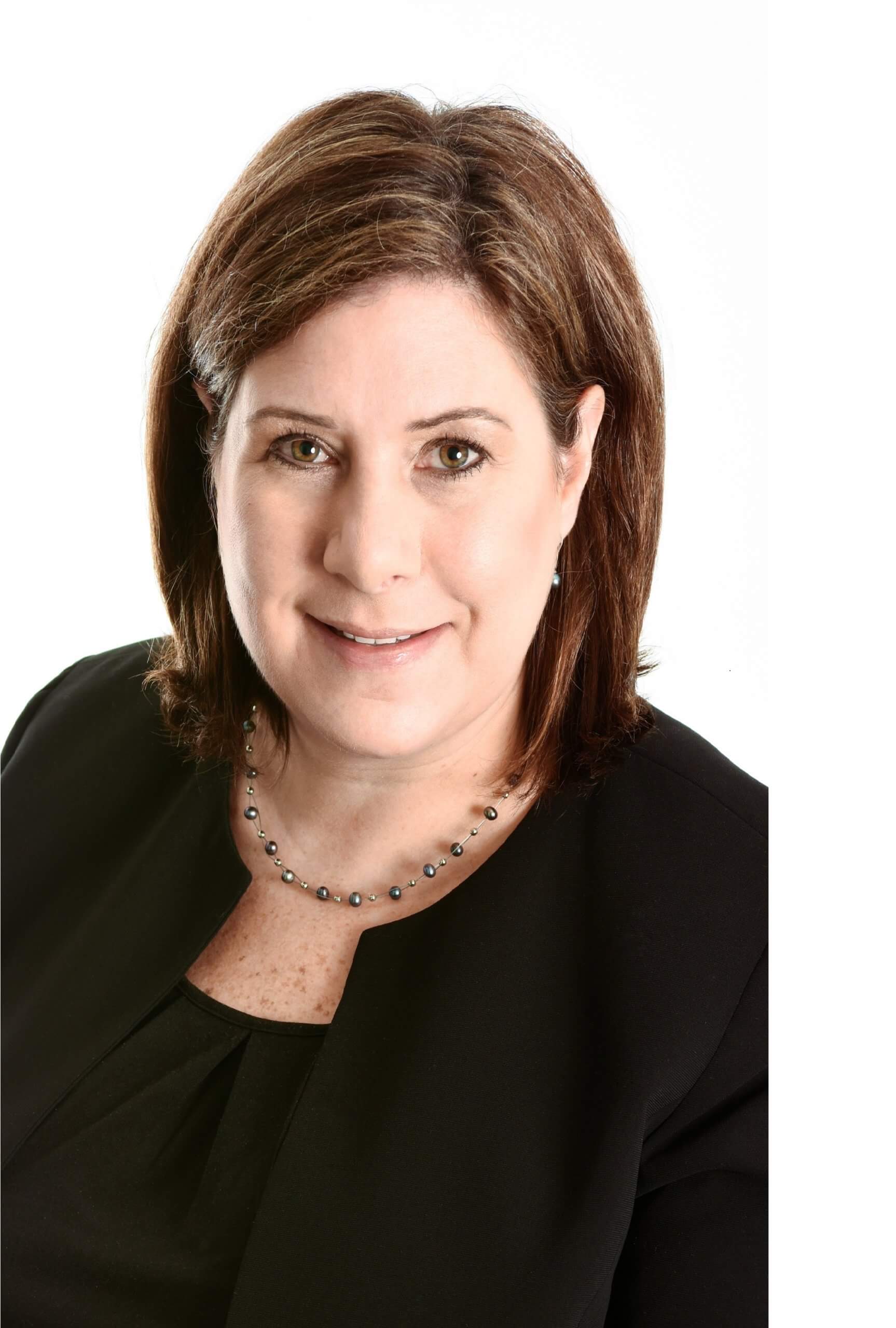
On International Day of Persons with Disabilities – which also marks 12 months since Current Global launched Accessible by Design, our commitment to making communications accessible across our business and industry – we’re giving the floor to our LATAM lead Thomas Levy.
———–
The path of least resistance is the one most often followed. We see it daily in the world of communications, where agencies and clients revert to tried and tested tactics to get the job done. Sure, it can make for quick decisions, time (and money) saved, and less aggravation. Least resistance can mean many things, including less time spent establishing a new set of terms, criteria, priorities, and internal logic – all of which are required when going down a more disruptive route.
Breaking a habit is disruptive and is always – always – intentional.
The concept of “breaking a habit” encompasses anything outside the trodden path. One could argue that it is disruptive to hire a person from a different professional or educational background, as while their contributions can be many, the daily norms of the business might be foreign to them – at least temporarily – and that calls for accommodation. Accommodation demands an intentional effort of inclusion, and so can be deemed disruptive.
What does that look like in practice?
Anyone who doesn’t look like you, think like you, speak like you, identify like you, or describe themselves like you will require accommodation. At long last, it seems like the world is beginning to understand this. But being truly accommodating in the workplace (diversity and inclusivity, right?) sometimes takes one or a few rude awakenings before you get it right.
How do you react when you can make a choice between two options: one that needs accommodation and one that does not, what is the train of thought that follows?
Am I willing to make accommodations?
Do I understand what these accommodations are?
Do I have the means to provide them?
Have the people who will be involved been communicated about this properly?
Am I keeping my assumptions and biases in check?
Here’s an example of how this complexity manifested in my own early career.
I’m part of the LGBTQIA+ community. It took me a while to understand that my oppression was very different to that of my peers as a white (Latino by geography, but white-passing), upper middle-class cisgender male. I’m also “straight passing,” especially when I speak another language. Still, in my professional life I’ve heard profoundly unpleasant and harmful things – how I should be more “discreet” or more participative in locker room banter. Isn’t this an example of taking the path of least resistance? Is it so bad that by being accommodating, it could also be disruptive? Are you protecting that person, or are you depriving them of a professional opportunity and the development of their career? Are they not worth accommodating?
There is also the challenge of knowing what the accommodations need to be.
Professional feedback has often been puzzling for me – and remained so until very recently. I was too blunt, my thought process was too confusing, I was unapproachable. I could not take hints, mistook cues, asked too many questions, was aloof or seemed to rudely ignore conversations, was terrible at reading the room or parsing office politics, too literal or intolerant towards feedback and group dynamics.
But some of my leaders seemed to “get” me very quickly. They enjoyed the fact I was not committed to established formats, was thorough with deadlines and often looked for efficiency. My communication was clear and straightforward. I allowed ample space for experimentation, tended to be very fast at accomplishing tasks, and kept a clear mental map of everything going on. I also have the Jinkx Monsoon approach of “water off a duck’s back” for harsher exchanges (Google it, trust me!) and can go from serious feedback to informal conversation like flicking a switch.
These two perceptions did not seem to match.
Turns out that the reason has a name: Autism. And I was suffering from “Autistic Burnout,” a challenge on its own, and an added layer of complexity to an already difficult scenario:
Diagnosis on several conditions that compose the “atypical” universe is heavily exclusionary. It is difficult to find a doctor who takes you seriously, or who keeps up to date with the changes in diagnosis procedures. Diagnosis can be prohibitively expensive – my own insurance (in Brazil where I live) did not cover mine. Self-diagnosis is very relevant because of this, and while no one would say this is ideal, it’s the only way for many people to understand themselves and find ways to improve their quality of life.
I know this is hardly particular to Autism. Friends and acquaintances with ADHD, Bipolar Disorder, Depression, Generalized Anxiety Disorder, and other manifestations of neural diversity share similar stories: professional advice to just “walk it off,” procedures recommended that can have the opposite effect on neuroatypical folk, use of outdated terminology and therapies. Then, for those of us who cross the initial gate of diagnosis, there are the “but you don’t look autistic,” “that’s not actually a thing,” “you won’t get any special treatment, you know,” “isn’t everyone a little autistic,” or “you just don’t want to put in the effort to blend in” reactions.
But enough about me. Has this made you reconsider the importance of making accommodations and welcoming disruption in your working life?
People may need more breaks. They may need an extra set of eyes to proofread material. Some may require different working hours. Others might need to put a cap on how many meetings they’ll be able to attend. They might need specific equipment. Some may need specific chaperoning. Some who did not need accommodating to begin with may need so later. Accommodations may need to change over time – and yes, that can be disruptive. None of this constitutes special treatment: these are accommodations that enable people to join your team – people who will undoubtedly bring skills, perspectives and experiences that will make your life and work richer.
In my ongoing process of self-discovery as an autistic person, I came across ASAN – the Autistic Self Advocacy Network – where I read something I recommend everyone take to heart: Nothing About Us Without Us. This is a reaction to the way the medical establishment dealt with autistic people for a very long time, assuming what was happening in our heads instead of asking us what our experiences were. Speak to your teams and clients. Hear from them what they need, how they feel, and what they want.
The history of neurodivergence is wrought with assumptions, of treating people as objects instead of subjects. We can all help break this vicious cycle of assumptions. We are everywhere. We are doing everything. The only road that matters is the one going forward. Even if it is disruptive.



Nos encanta resolver los retos empresariales y de marca más difíciles. Nos encantaría hablar contigo sobre cómo podemos ayudarte a encender tu chispa.
hello@currentglobal.com